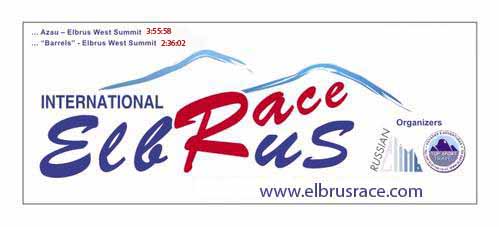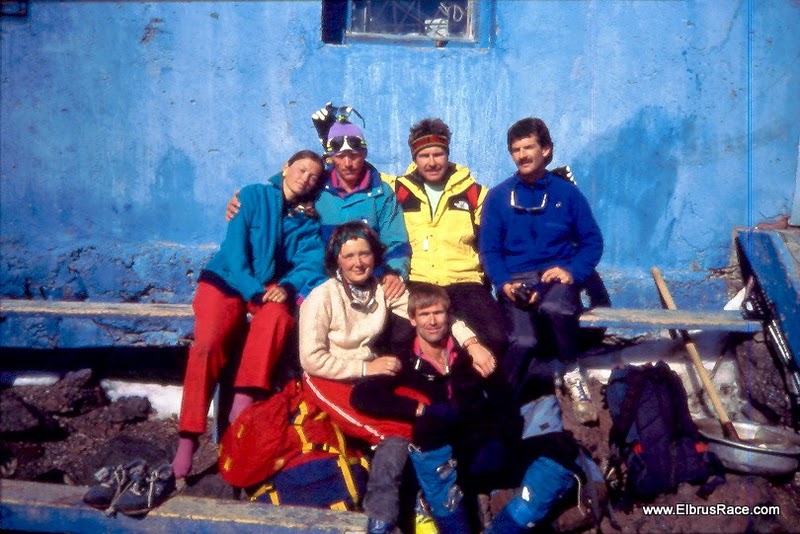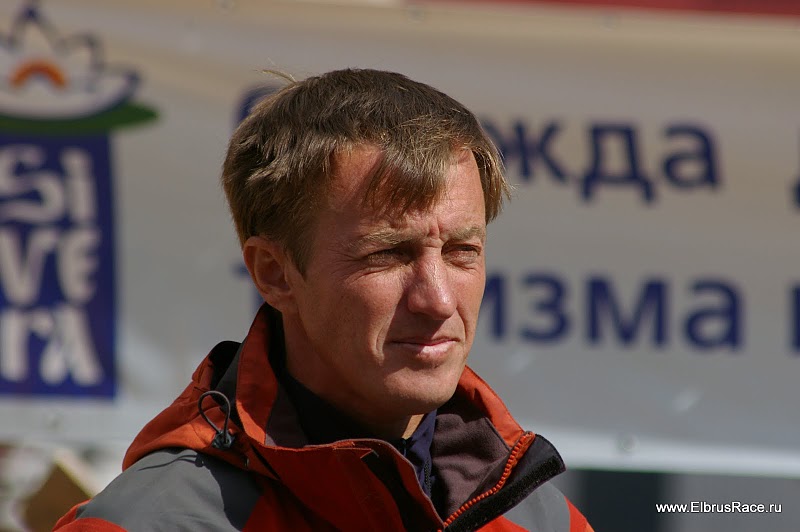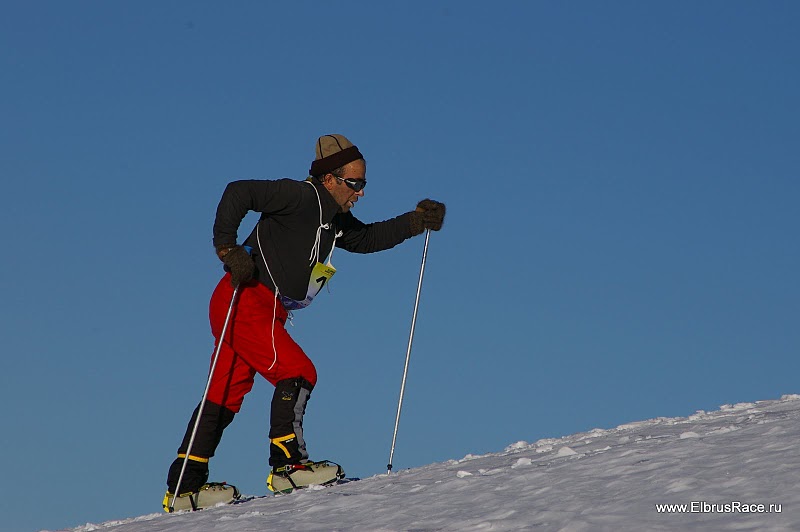

VI INTERNATIONAL ELBRUS RACE September, 21-23, 2010 "You can't race any higher in Europe!!!" Organizers: TOP SPORT TRAVEL (www.sklon.ru) and WWW.RUSSIANCLIMB.COM
Elbrus Race - the gate to the real altitude. 20 years ago the outstanding climbers competed on Elbrus š- Russians and Americans. Why they participated in such unusual and difficult competitions? And why, since 2005, we have revived this idea, and annually in September we run šInternational Elbrus Race?
1990, Elbrus Race participants. Anatoly Boukreev is second in upper line from the left.
Secondly, having defined, having learnt and HAVING overcome the limit, a climber can be more confident in possible extreme circumstances during the future high-altitude climbs. When climbers are going for the first time to the real altitude (7000 m, 8000) they can't be sure, how their body will feel there, whether it will agree to suffer of all deprivations connected with HAPE, exhausting, necessity of long concentration. Elbrus Race can become the first test for readiness što the high altitude and šspecific endurance. Every athleteš may compare his condition to well-known high-altitude climbers, who start nearby. One of the brightest stars in world tables of ranks of the Himalaya mountaineering, Anatoly Boukreev who has become ša symbol of improbable working capacity and endurance on 8000-ers, who had climbed 11 highest peaks (8000+), including high-speed climbs, became the Winner in 1990 on Elbrus on on the way Priut 11 - Elbrus East top with the result 1 hr 47 min. Other well-known Kazakhstan climber- Denis Urubko (who climbed all 14 8000+ peaks šwithout additional oxygen, including 3 difficult first climbs via new routes, one speed climb, who complete the Snow Leopard program in one summer season) has established in 2006 the fantastic record on Elbrus, not broken till now - he šrun a line from Azau š(2400 m) to the Elbrus Western top in 3 hrs 55 minutes.
Denis Urubko, Elbrus Race recrd holder Russian Andrew Mariev, the member of the Russian national team, šwho climbed two great new routesš -Everest North Face and K2 West Face, participated twice in International Elbrus Race, and twice with the great result: in 2008 2nd place in Extreme class (Azau-western top), and in 2009 - on the same line he has improved the time more than on an hour! And there are also another examples , when speed ascent competition becomes the first step to the success in Himalaya: Balkarian Abdulhalim Elmezov, remarkable both the person and the mountain rescuer with the wide mountain experience, in 2006 run theš classic distance with very good time, and one year ago, in age more than 50 he climbed Everest. Other Caucasian Roman Gubanov has confidently won in 2007 on a classical line Garabashi š- the Western top, and in 2008 became the winner in "extreme" classš - and in Karakorum he became one of the four members of the Kuban expedition who have topped out K2.
Abdulkhalim Elmezov? mountain rescuer and Everest summiteer Americans Kevin Cooney and Patrick Healy who had very good results in 1990 Elbrus Race (the second šand the third places) thenš climbed šEverest without oxygen - their first 8000-er. Svetlana Sharipova from Almaty, who became the winner among women in 2006 (and her time remains a record on a line Garabashi - the Western top of Elbrus till nowdays), has successfully summited Makalu and Dhaulagiri without additional oxygen. 19-year-old Ukrainian Masha Hitrikova, the šchampion on a classical distance in 2009, has her 8000+ top still ahead, but she already summited the Himalaya peak Ama Dablam, andš Korzhenevskaya peak, Khan Tengri and Lenin peak. Masha Khitrikova, the winner Elbrus Race 2009 This year, in 20-year-old anniversary of the first successful "Balyberdin" Elbrus race, it is possible to say with confidence that Elbrus Race championsš can Time will come - and we may soon hear about beautiful Himalaya climbs by Serguey Fursov, who šwon Elbrus Race twice: - at first in "classic" in 2008, and then and in "extreme" in 2009. Himalaya expeditions organizers should pay attention to this talented athlete and invite him in the team. Serguey Fursov, the Winner in 2008, 2009
Nickolay Shustrov August, 4th 2010 Competition site: www.elbrusrace.com General sponsor VI International Elbrus Race
|



